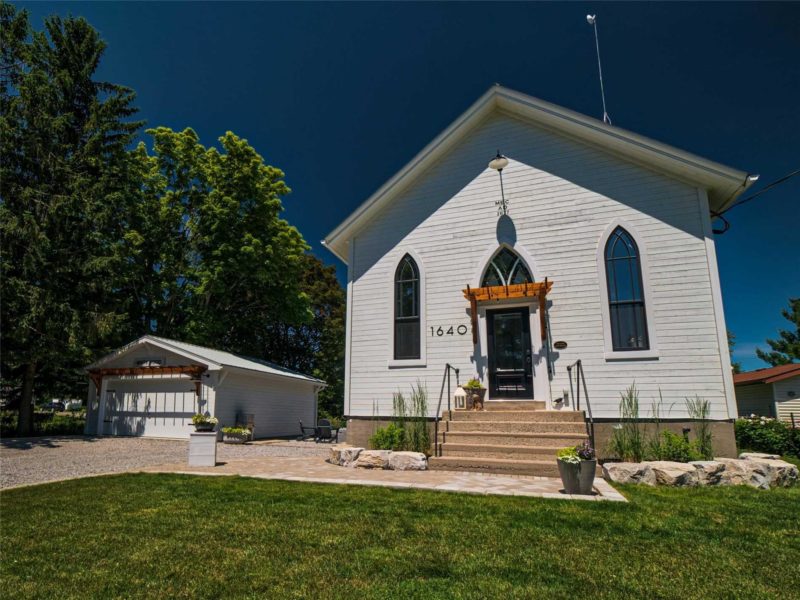The 9-Second Trick For Church Real Estate
Table of ContentsSome Known Factual Statements About Church Real Estate Some Ideas on Church Real Estate You Need To KnowThe Facts About Church Real Estate Uncovered
A church with outstanding exposure from the interstate may sound terrific until you need to go 5 miles past it to the next exit and after that browse back to it through a maze of country roadways - church real estate. Pay attention to population density and market penetration. "Penetration rate" is a retail term that takes a look at the number of people "store" at your store compared to other similar stores in your community.So, if you're taking a look at 2 "equivalent" homes (related to the quality and costs), and Home A has 200,000 individuals within a 20-minute drive radius, while Residential or commercial property B has only 100,000 individuals within a 20-minute drive radius, then Residential or commercial property A is the better area. Your penetration rate will help your architect program your master strategy accordingly to accommodate your growth at full build-out.
If you're looking at residential or commercial properties in various areas, analyze who you're presently reaching and who you desire to reach. Will these people concern the location you wish to purchase? If not, it's not a clever relocation to purchase it, no matter how good the deal looks. Maybe looking for residential or commercial property appears a bit more frustrating than it did before you read this post, however the good news is that with the ideal group members, the ideal attitude, and the appropriate procedure, you can effectively navigate your church to the right area.
is president of Visioneering Studios Real Estate. Visioneering Studios grew out of the desire for the church to restore a leadership position in culture. Since its beginning in 2002, Visioneering has grown into a national faith-based design-build firm offering its suite of services to churches, nonprofits, and business businesses alike.
If you are not in the real estate world or the title insurance world, you might not know that the title to realty for most Churches is held by the Church as an incorporated entity. Some Churches do not have the regional power to sell or mortgage any of its real estate without the written authorization of the "district or mother" church prior to entering into a sale or financing.
Everything about Church Real Estate
We believe that having the appropriate kinds before we reach the closing table, allows us to have a smooth transfer to the new buyer. Below is a list of the typical requirements for guaranteeing title on Church's, if you areIncorporated. Certificate of Incorporation or Evidence of Incorporation and confirming Corporation is active and existing.


The Mormon Church's real-estate empire easily exceeds $1 billion, consisting of farms and ranches in the West and Midwest, buildings and apartment or condos on the West Coast and a big portion of land in central Florida, The Arizona Republic reported Tuesday - church real Web Site estate. Given its massive income from tithing and company operations, it appears the church is investing numerous hundred million dollars a year in securities and property, the paper stated in the 3rd installment of a four-part series on the holdings of the Utah-based church." I would say they're most likely among the largest private owners of farmland in the United States," said John Scott, teacher of land economics and farm management at the University of Illinois, although he hasn't put together records to show that.
Property records are taped in the 2,825 counties in the United States. And the church holds title to land under a range of different names, which it likewise refuses to divulge. So it is virtually impossible to figure out independently how much residential or commercial property the church owns, and where. However in an attempt to determine the scope of the church's real-estate holdings, The Republic spent more than a month carrying out a nationwide look for ideas from corporate documents, property-tax records, federal and state income-tax files, published reports and even water-rights claims.
Church Real Estate Things To Know Before You Buy
The picture, though far from total, is excellent. The church's most see this site important land holdings obviously are in Arizona, Utah, California and Florida. In its house base of Salt Lake County, the church owns $137 million in commercial and industrial homes as valued by taxing authorities. It owns big blocks of downtown property around its Salt Lake Temple, consisting of 3 high-rise office complex, a mall, the land underneath other key structures and a minimum of 230 domestic parcels.
6 million workplace structure in Anaheim and a $4. 5 million retail development in Fresno County. It also owns at least 13,000 acres of California agricultural land worth $34. 6 million and uninhabited land worth $20. 3 million. In Florida, the church owns what Orlando broker Trevor Hall says "might be the state's largest piece of privately owned undeveloped property. church real estate." The 315,000-acre Deseret Ranches, bought in the 1950s, is home to orange groves and cattle.
The church is preparing to construct a neighborhood with 5,000 houses and 4,200 homes, plus schools, offices and stores. In Arizona, the church owns at least $117 million in commercial and farming homes and uninhabited land, consisting of about 6,000 acres of farmland and orchards in Maricopa County. These homes produce for the industrial market and are handled by Farm Management Co., based in Salt Lake City, which administers the church's business farming and ranching residential or commercial check my site properties.